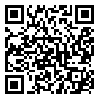Volume 21, Issue 2 (9-2023)
sjsph 2023, 21(2): 215-230 |
Back to browse issues page
Download citation:
BibTeX | RIS | EndNote | Medlars | ProCite | Reference Manager | RefWorks
Send citation to:



BibTeX | RIS | EndNote | Medlars | ProCite | Reference Manager | RefWorks
Send citation to:
Atefifar H, Aghajani Marsa H, Mohseni Tabrizi A. Typology of Strategies for Taking Care of Risky Behaviors Based on the Family Socio-Economic Status. sjsph 2023; 21 (2) :215-230
URL: http://sjsph.tums.ac.ir/article-1-6252-en.html
URL: http://sjsph.tums.ac.ir/article-1-6252-en.html
1- Ph.D. Candidate, Central Tehran Branch, Islamic Azad University, Tehran, Iran
2- Ph.D. Associate Professor, Department of Sociology, Faculty of Social Sciences, Islamic Azad University, Central Tehran Branch, Tehran, Iran ,Hos.aghajani@iauctb.ac.ir
3- Ph.D. Professor, Department of Sociology, Faculty of Social Sciences, University of Tehran, Tehran, Iran
2- Ph.D. Associate Professor, Department of Sociology, Faculty of Social Sciences, Islamic Azad University, Central Tehran Branch, Tehran, Iran ,
3- Ph.D. Professor, Department of Sociology, Faculty of Social Sciences, University of Tehran, Tehran, Iran
Abstract: (805 Views)
Background and Aim: Tobacco use, narcotics, drug abuse, consumption of alcohol, having unsafe sexual relations and other such behaviours are risky behaviors that tend to cause great concerns in families. Parents try to cope with high-risk behaviors through care strategies. The purpose of this research was to determine the typology of strategies for taking care of risky behaviors based on to the family socioeconomic status (SES).
Materials and Methods: This was a quantitative descriptive-correlational research including all the urban families of Tabriz, Iran, from among whom a sample of 384 families was selected by the multi-stage cluster method. Two measurement tools (checklist for high-risk behavior care strategies and a family SES questionnaire) were used to gather data, the one-way analysis of variance (F) test and linear regression being used to determine the relationships between the variables.
Results: The means of strategies for taking care of risky behaviors were significantly different based on the SES of the family, the upper classes adopting a more appropriate (procedural) strategy to take care of children against risky behaviors than the lower classes. Conclusion: Families with a medium and low SES use ineffective care strategies (inefficient and momentary) to cope with risky behaviors. In order to improve the public's health, it is necessary to adopt prevention-based cultural-educational policies to transform ineffective care strategies to procedural strategies.
Materials and Methods: This was a quantitative descriptive-correlational research including all the urban families of Tabriz, Iran, from among whom a sample of 384 families was selected by the multi-stage cluster method. Two measurement tools (checklist for high-risk behavior care strategies and a family SES questionnaire) were used to gather data, the one-way analysis of variance (F) test and linear regression being used to determine the relationships between the variables.
Results: The means of strategies for taking care of risky behaviors were significantly different based on the SES of the family, the upper classes adopting a more appropriate (procedural) strategy to take care of children against risky behaviors than the lower classes. Conclusion: Families with a medium and low SES use ineffective care strategies (inefficient and momentary) to cope with risky behaviors. In order to improve the public's health, it is necessary to adopt prevention-based cultural-educational policies to transform ineffective care strategies to procedural strategies.
Keywords: Risky Behaviors, Care Strategies, Socio-Economic Status (SES), Prevention, Public Health, Family-Based Interventions.
Type of Study: Research |
Subject:
Public Health
Received: 2024/01/24 | Accepted: 2023/09/21 | Published: 2023/09/21
Received: 2024/01/24 | Accepted: 2023/09/21 | Published: 2023/09/21
Send email to the article author
| Rights and permissions | |
 |
This work is licensed under a Creative Commons Attribution-NonCommercial 4.0 International License. |





